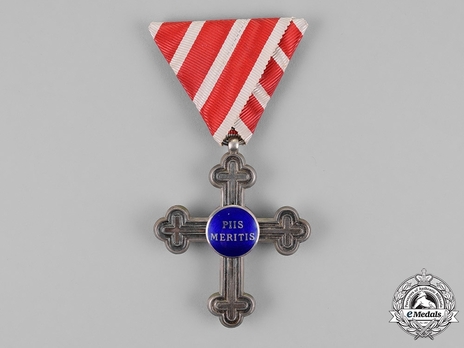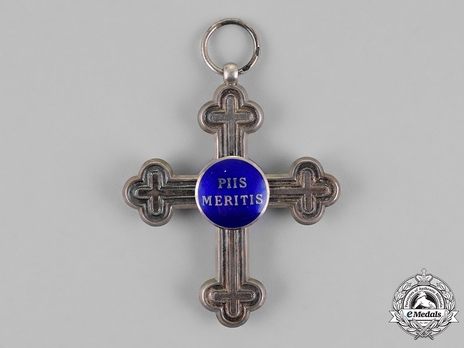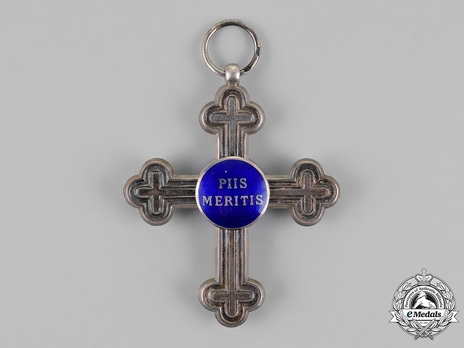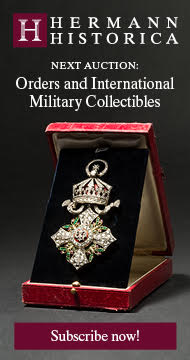Merit Cross "Piis Meritis" for Military Chaplains, Type II, II Class
CATEGORY: Version
SKU: 02.AUT.0105.102.01.000
Estimated market value:



Estimated market value:
Austria, Empire. A Merit Cross for Military Chaplains, Second Class, c.1850
(Ehrenkreuz für Feldgeistliche). Issued 1801-1859. A Latin cross constructed of silver; the obverse and reverse with a central blue enameled medallion, inscribed “PIIS MERITIS”; on a loop for suspension - marked “VM” for “Vincent Mayer”, and with a Vienna Assay mark and mark for “800” silver purity; with its period original wartime tri-fold ribbon; measuring 51.75 mm (w) x 63.22 mm (h); weighing 22.1 grams; the enamels moderately chipped on one of the sides; in overall fine condition.
The “Piis Meritis” Cross was established by Emperor Franz II following the War of the 2nd Coalition (1799-1801) with France to reward military chaplains for their service. The decoration was conferred for extreme rigour and fulfilment of duties in the spiritual care of military personal on the battlefield, associated with danger or under enemy threat. This decoration ranked below the Military Merit Cross and above the Bravery Medals.
In 1911, that statutes were amended to retitle the golden cross to be the I Class and the silver cross became the II Class. It was also allowed to be rewarded in peacetime for many years of meritorious work an zealous work in the spiritual care of the military troops. The ribbons distinguished the war and peacetime awards. The ribbon for war time awards was the striped red and white ribbon, where the civil ribbon was pure white.
The Imperial resolution on December 5, 1916 by Emperor Karl I allowed for swords to be worn on the ribbon for achievements directly in the face of the enemy.
The Type I (1801-1859) crosses have italic style writing, blue enamel, and they were awarded on a ribbon with seven alternating stripes of white and red, with 4 white stripes and 3 red stripes.
The Type II (1859-1878) crosses have traditional type set letters, and the central enamel is white for the I Class. They were awarded on a ribbon with seven alternating stripes of white and red, with 4 white stripes and 3 red stripes.
The Type III (1911-1918) crosses were separated into war awards and peacetime awards.
The silver or II Class Merit Cross for Military Chaplains was awarded a total of 1,990 times. The majority were awarded during the First World War.
The inscription PIIS MERITIS translate to “For Pious Merit.”

Comments
Sign in to comment and reply.


Scroll Top